Characteristics of coffee flavor of Hartmann Manor in Walken area of Panama in anaerobic sun-drying Hartman Rose Summer
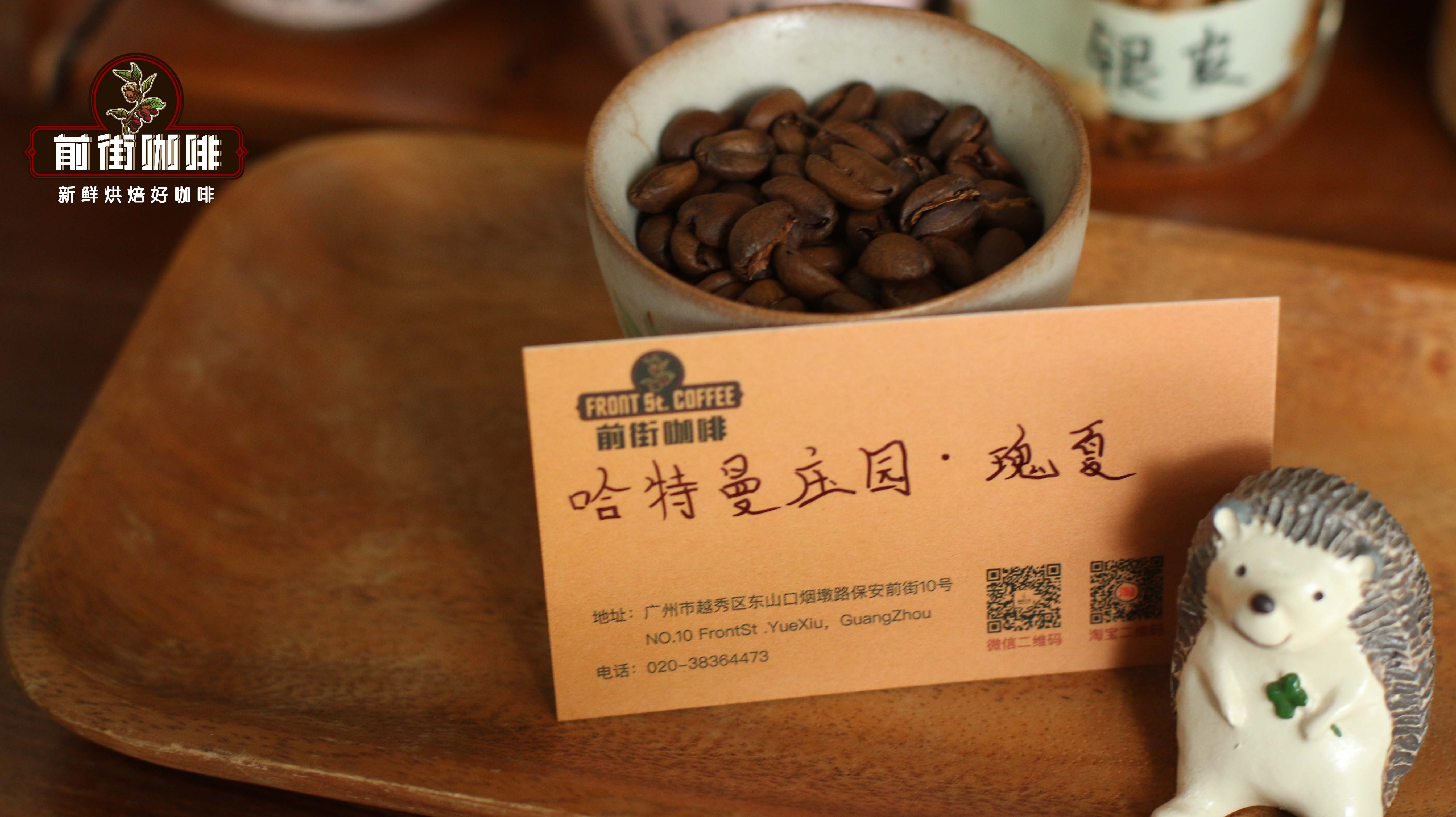
Front Street Coffee: rose Summer Coffee beans at Hartman Manor in Panama
Country: Panama
Grade: SHG
Producing area: Walken producing area
Manor: Hartman Manor
Variety: Rose summer
Flavor: bergamot, pineapple juice, passion fruit, Earl Grey Tea, blueberry, apricot
Walken producing area of Panama
When it comes to coffee producing areas in Panama, many people may think of Boquete for the first time. But in recent years, many excellent estates in the Volcan producing area, also close to Volcan Baru, are often active in the BOP raw bean competition (Best Panama).

The Walken region is located in the area of the Baru volcano. The producing area bears the sea breeze entered by the Atlantic Ocean due to the topographic gap, and the undulating terrain creates a rich and changeable microclimate. Often one side of the sun, the other side of the rain hanging a rainbow; one side is calm, while the other side is jittery. Hartman Manor is 1300-2000 meters above sea level, with a tropical jungle nature reserve on one side and a Costa Rican border on the other. The unique alpine microclimate is very suitable for growing coffee.
In the early days, most of the Walken area grew cash crops such as fruits and vegetables, while coffee farmers accounted for only a small number. The pioneers of coffee planting in Walken are the Hartman family, which is well-known in Panama. The Walken region has less annual rainfall than Poquette, while the geographical environment west of Mount Baru and growing with a variety of fruits give coffee a stronger fruity flavor, sweetness and aroma.

Hartman family
Hartman Manor (Finca Hartmann) was founded in 1940, has been founded for more than a hundred years, and now the owner of Hartman Ratibor Hartmann is the third generation of head. The first ancestor of the Hartman family, Alois Strasil Hartmann, first reclaimed the coffee growing area in the Walken region of Panama, and then the second generation Hartmann Troetsch moved the coffee cultivation to the Santa Clara producing area and officially founded Hartman Manor.
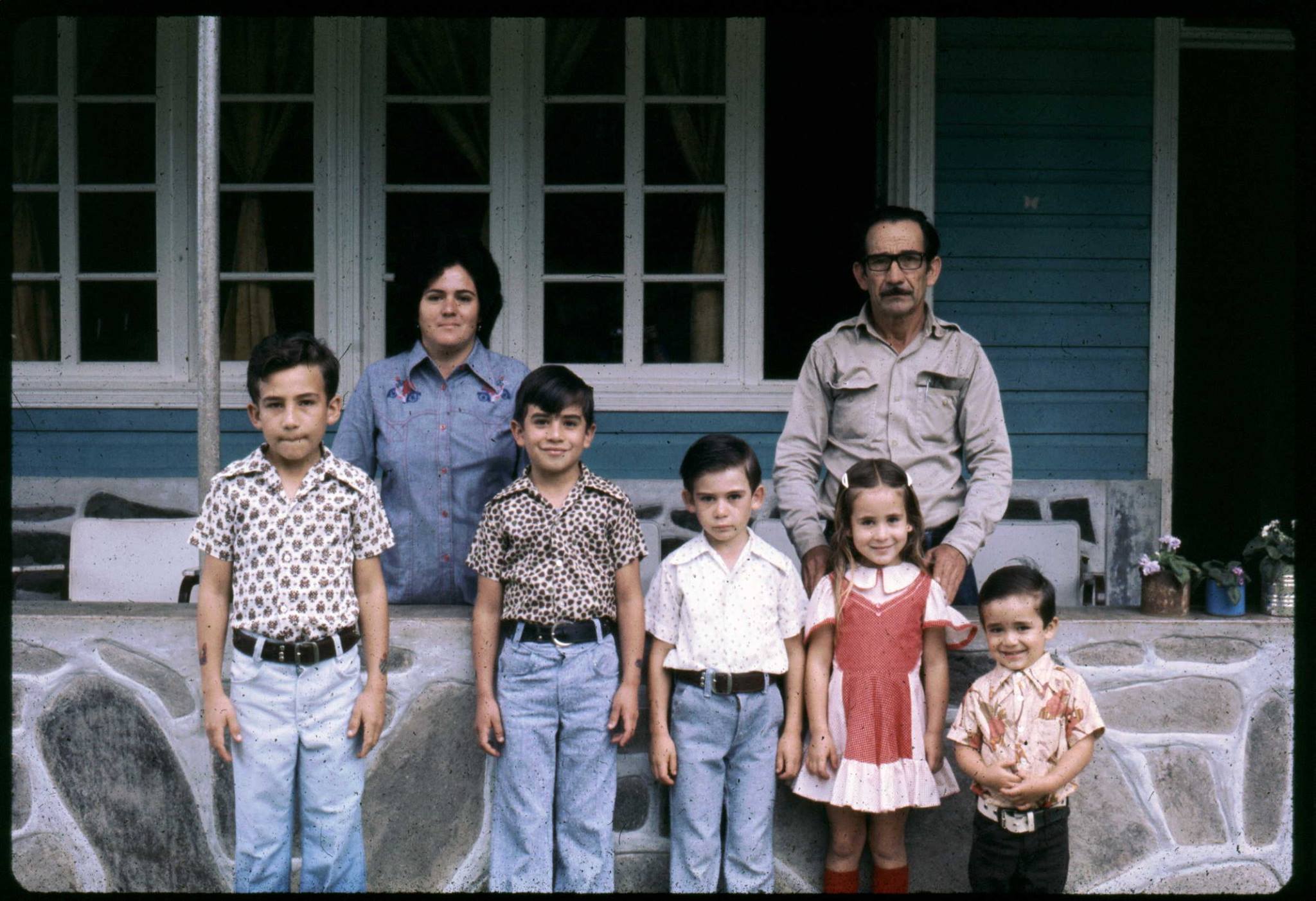
The Hartman family has a reputation not only in the coffee industry, but also in the scientific community. They have not only published books on birds and shade cultivation, but also more than ten papers have been published in sci-tech journals. Out of protection and respect for nature, the Hartman family also tried to preserve most of the trees in the garden. As the area expanded, Hartman planted a large number of native tree species and plantains as shade trees in the garden. As a result of woodland conservation, there are quite a number of native birds in the manor, and the most famous big-billed bird in the area has naturally become the standard Logo of the manor.
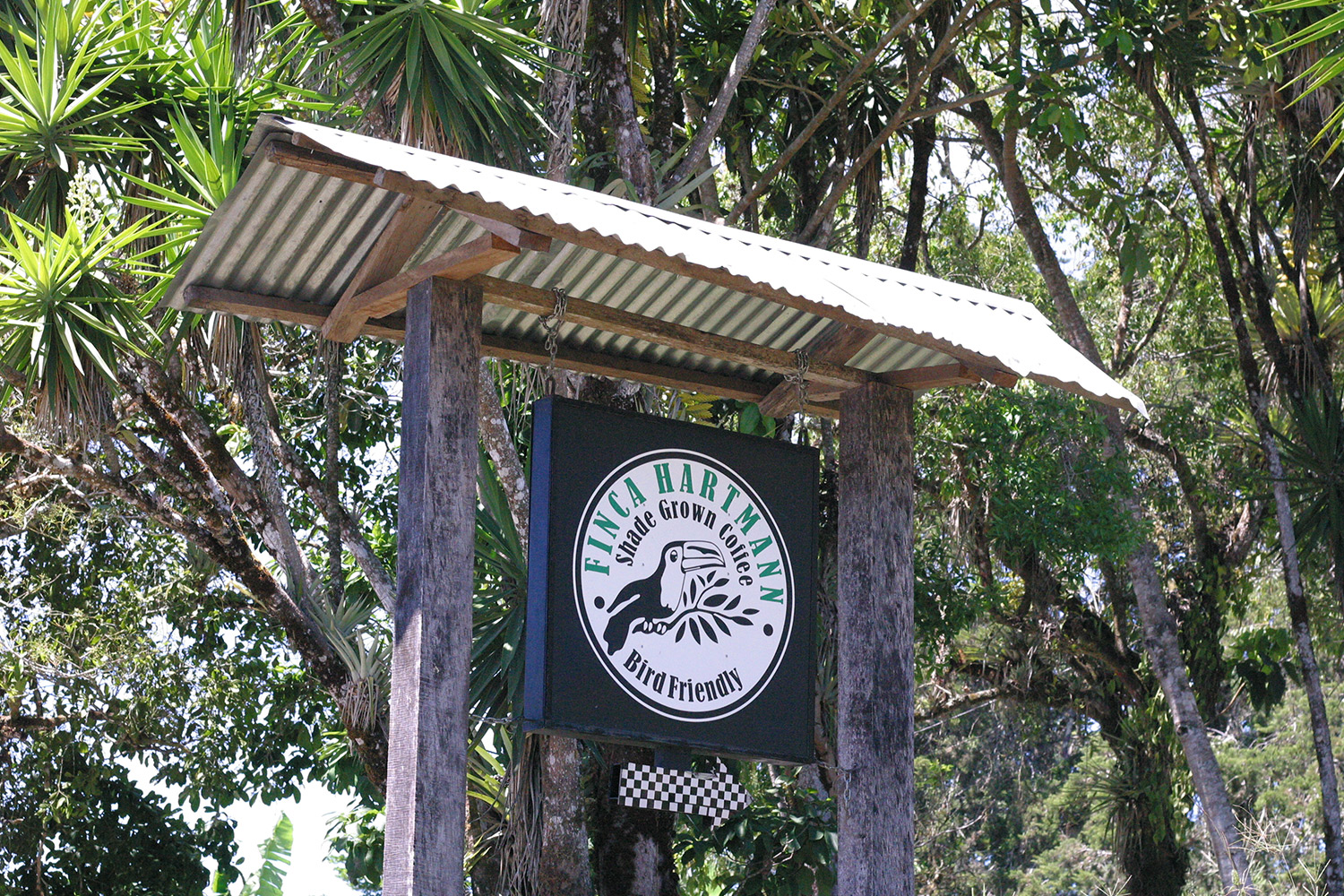
The Hartman Manor brand has two estates: Santa Clara Farm (Santa Clara) and Water Eye, which is famous for its sustainable farming practices and biodiversity. The planting soil here is nutrient-rich volcanic soil, and towering pristine rainforest trees can provide good shade for coffee trees. At present, Hartman Manor is handled by the five children of Hartmann Troetsch, and the eldest Ratibor and Kelly are responsible for planting, breeding, fertilization and other important work related to coffee quality in the park, which is the soul of Hartman Manor. For example, Ninety Plus (90 +)'s estate in Panama and mule estate (Finca La Mula-) are managed by the Hartman family.
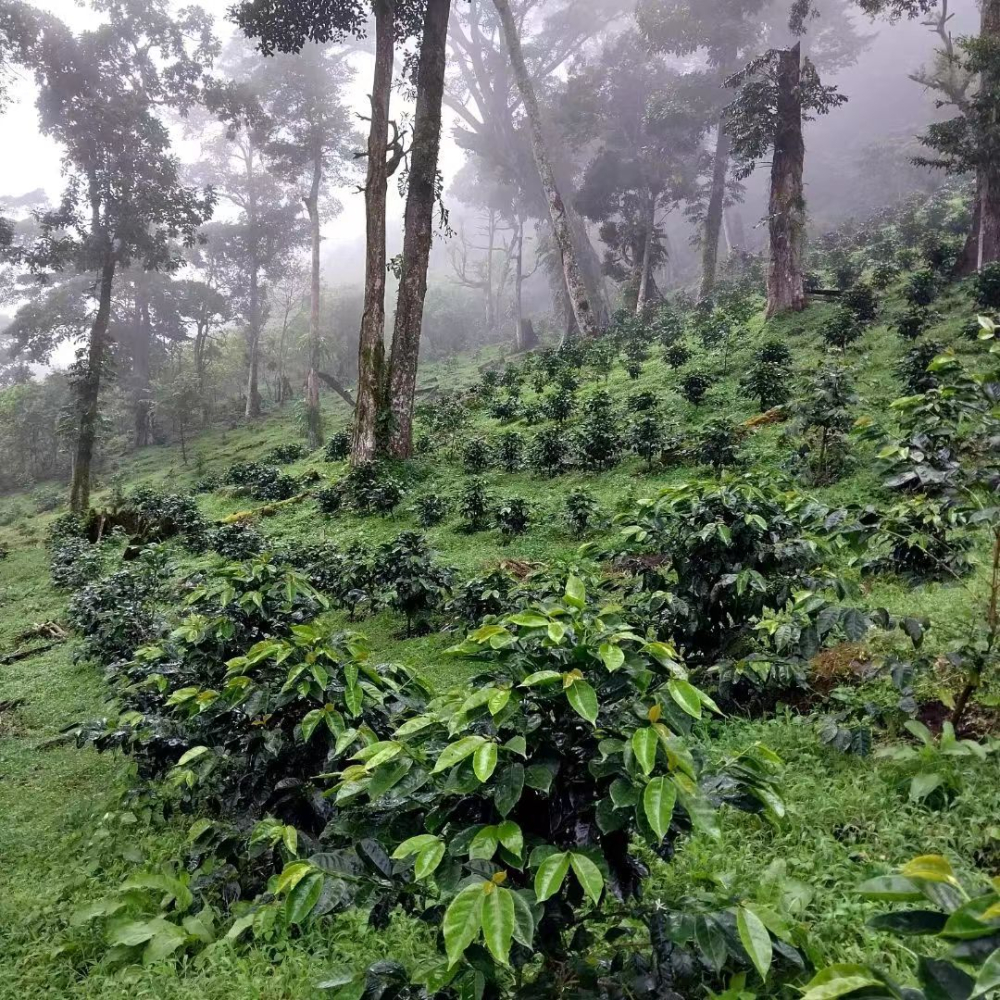
Rosesia variety
At first, the rose variety was introduced into Panama as an improved variety, but it was not popular with farmers because of its low fruit yield and low-altitude flavor. Until the Emerald Manor unearthed its charm and took it to compete in the best Panama competition in 2004. It shows rich flower and fruit aromas of berries, citrus and bergamot, thus forming a very typical Panamanian rose summer flavor.
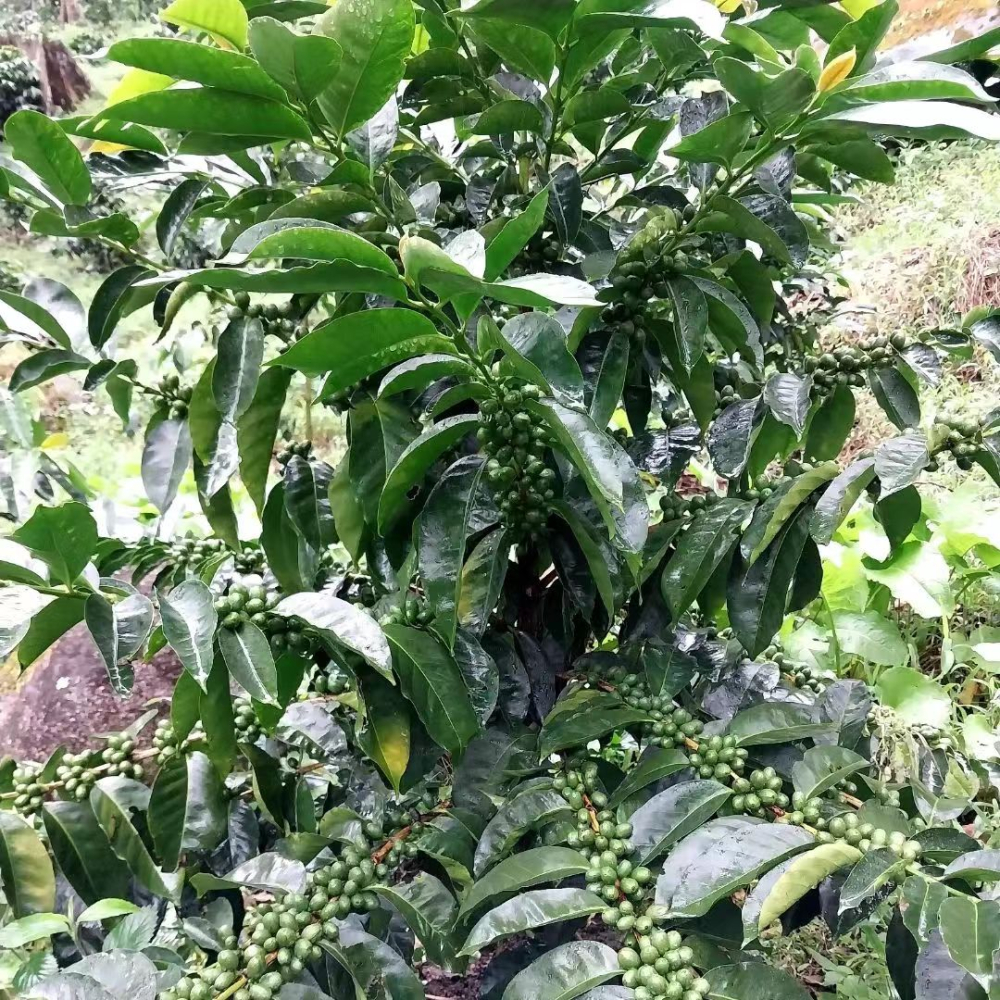
This time, the rosy summer coffee started from Hartman Manor in the front street adopts the method of anaerobic solarization. In order to present the compound flower and fruit notes of rose summer, Qianjie coffee chooses medium and light roasting.
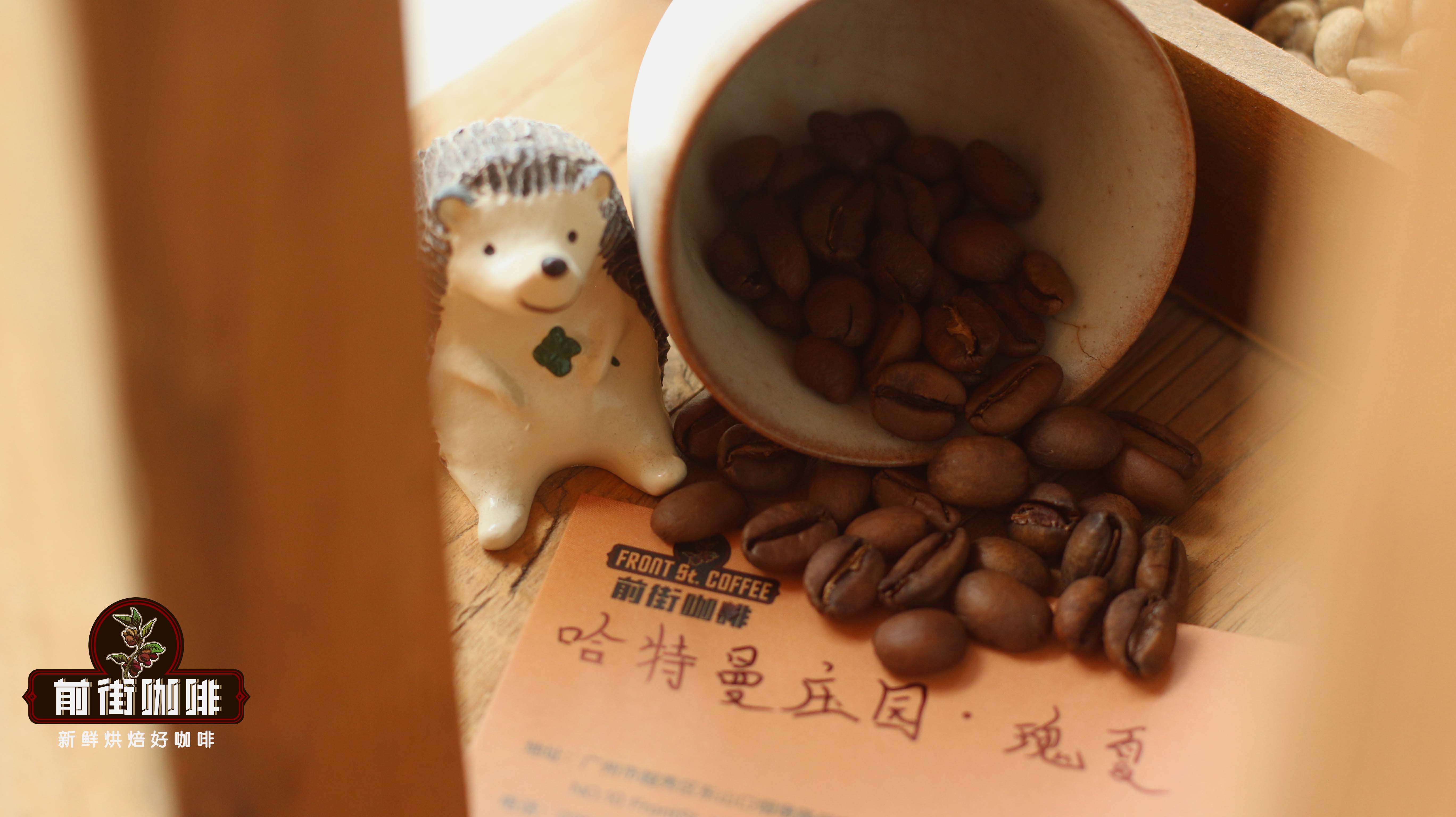
Suggestion on brewing coffee in front street
Filter cup: V60
Water temperature: 92 ℃
Powder content: 15g
Ratio of powder to water: 1:15
Degree of grinding: fine sugar size (20 sieve bowl sieve powder to 80%)
Fold the filter paper and stick it with the filter cup, wet the filter paper with a small amount of water and make them fit better, and pour out the water from the pot. Then pour in the coffee powder and gently pat to let the powder layer distribute evenly. The first stage is gently injected with 30 grams of water for steaming for 30 seconds, and the second stage is injected with about 125 grams of water to circle evenly and smoothly outward. Then wait for the coffee liquid to drop, drop to half, inject the last section of water to 225 grams, wait for the coffee to fall behind, the general total extraction time is about 2 minutes.
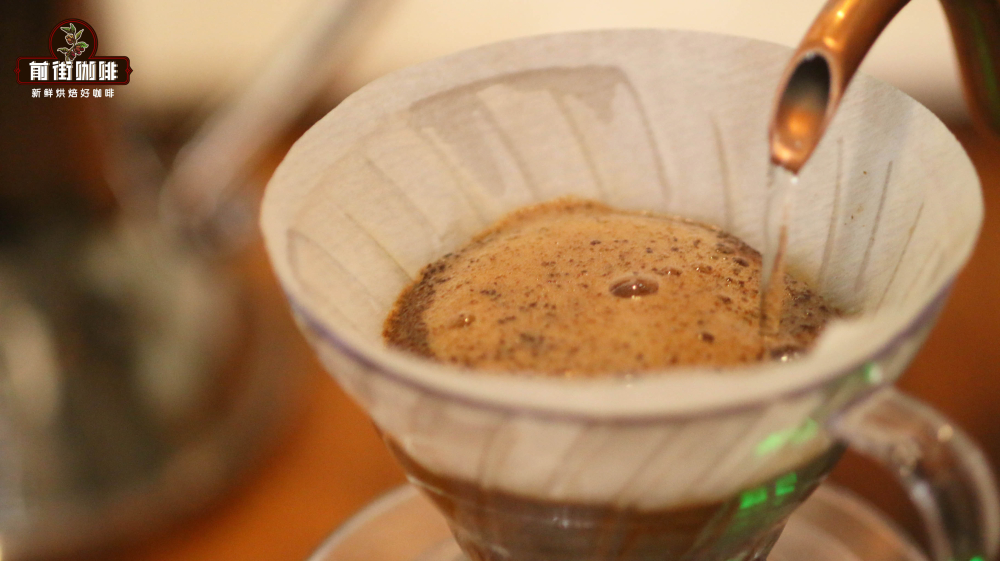
Cooking flavor: the entrance is elegant white flowers, with a variety of fruit acidity, reminiscent of bergamot, pineapple, blueberry, as the temperature drops slightly, the overall taste shows an Earl Grey Tea-like taste.
Professional coffee knowledge exchange more coffee bean information please follow the coffee workshop (Wechat official account cafe_style)
For more boutique coffee beans, please add private Qianjie coffee on Wechat. WeChat account: qjcoffeex
Important Notice :
前街咖啡 FrontStreet Coffee has moved to new addredd:
FrontStreet Coffee Address: 315,Donghua East Road,GuangZhou
Tel:020 38364473
- Prev
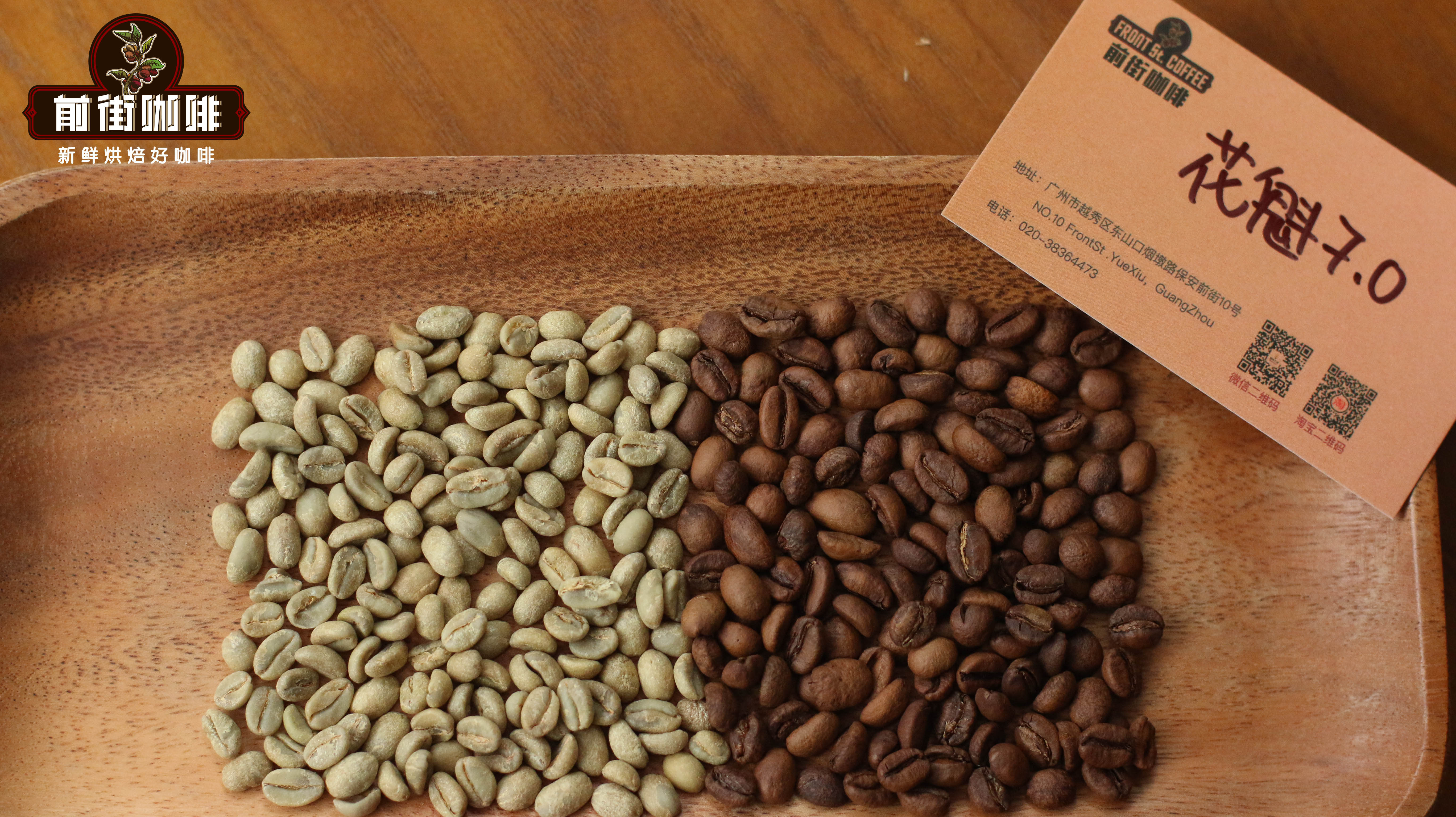
Introduction to the flavor and taste of Xidama Sun Huakui 7.0 Coffee Bean Humbela Sakui Coffee in the new season
Huakui coffee beans have been deeply concerned by domestic coffee practitioners and enthusiasts. The whole coffee circle has been discussed before the new season Sakuran coffee beans arrive in Hong Kong every year. Everyone hopes that the new year's Huakui coffee will still be as sweet as strawberries and smooth as cream. And Sakui 7.0 in the latest season
- Next

What is the flavor of coffee from the four major producing areas in Yunnan? Introduction to the characteristics of Katim Coffee varieties in Yunnan Province
"would you like to try our Yunnan beans-Qianjie 2013, these are the coffee beans we grow in Yunnan." This is the advice that baristas in front of the street will give when guests are faced with a blackboard bean list but don't know how to start. When some guests hear that these are Yunnan beans, their eyes will shine, and some curious guests will ask one more question. "
Related
- Detailed explanation of Jadeite planting Land in Panamanian Jadeite Manor introduction to the grading system of Jadeite competitive bidding, Red bid, Green bid and Rose Summer
- Story of Coffee planting in Brenka region of Costa Rica Stonehenge Manor anaerobic heavy honey treatment of flavor mouth
- What's on the barrel of Blue Mountain Coffee beans?
- Can American coffee also pull flowers? How to use hot American style to pull out a good-looking pattern?
- Can you make a cold extract with coffee beans? What is the right proportion for cold-extracted coffee formula?
- Indonesian PWN Gold Mandrine Coffee Origin Features Flavor How to Chong? Mandolin coffee is American.
- A brief introduction to the flavor characteristics of Brazilian yellow bourbon coffee beans
- What is the effect of different water quality on the flavor of cold-extracted coffee? What kind of water is best for brewing coffee?
- Why do you think of Rose Summer whenever you mention Panamanian coffee?
- Introduction to the characteristics of authentic blue mountain coffee bean producing areas? What is the CIB Coffee Authority in Jamaica?

